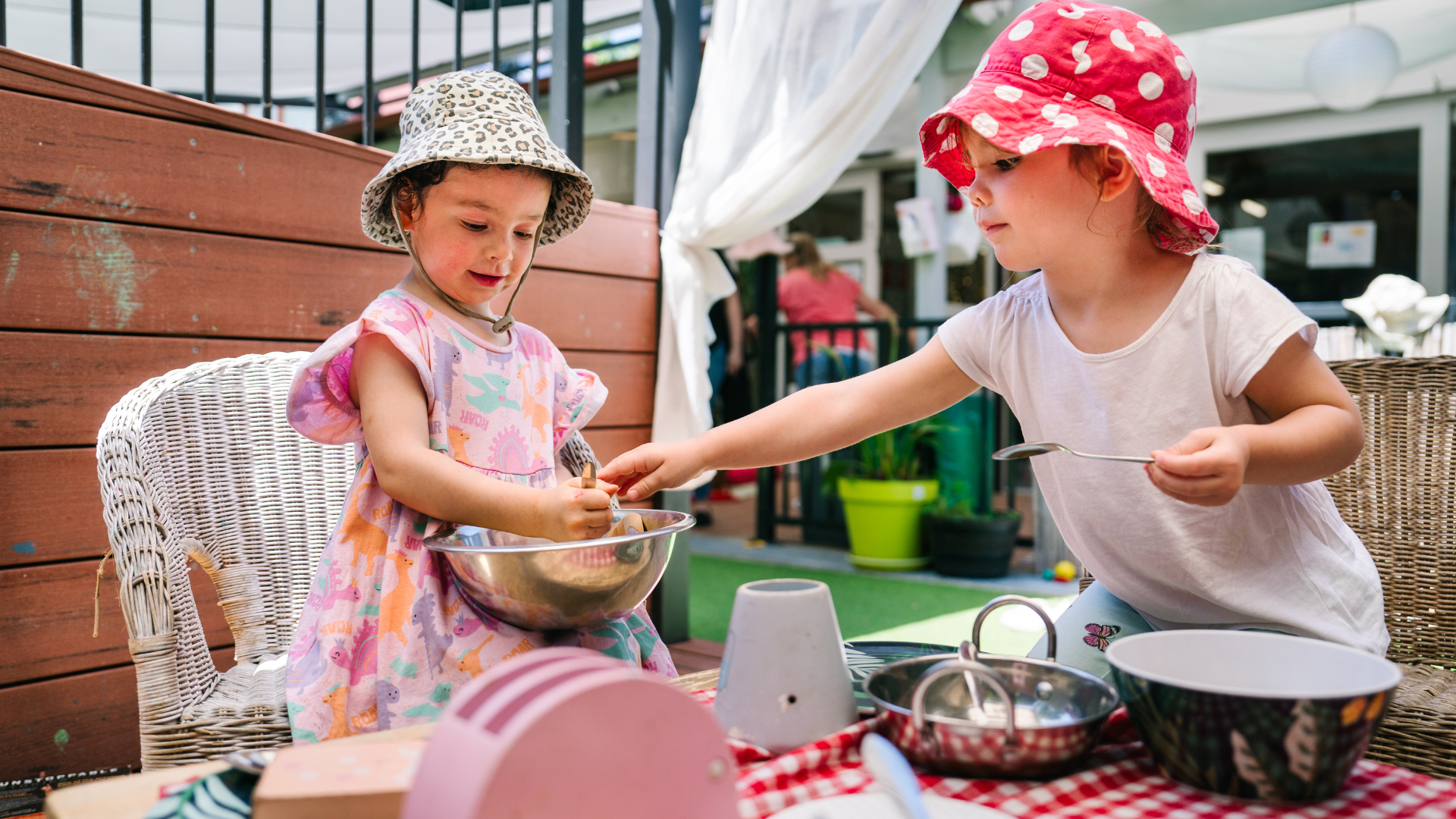
Learning through play is one of the most important ways children learn and develop.
Educators at your child’s early childhood education and care service might have told you that they use a ‘play based’ approach for children’s learning and development.
Play is an activity where children show their remarkable ability for exploration, imagination and decision making, and it is intensely enjoyable for them. The type of play children engage in and its purposes change over the course of childhood from infancy to adolescence.
You may have realised that as a parent, you don’t generally have to make children play or provide incentives to play. This is because children seem to have a natural urge to play and playing brings a level of pleasure and interest which means it can be maintained without external rewards.
How does play support your child’s development and learning?
Physical development - active play uses large and small muscles such as climbing, running, ball games, digging, jumping, and dancing.
This type of play supports:
- overall health and sense of wellbeing
- physical growth
- appreciation for the benefits of active lifestyles
- skills for independence in self-help such as dressing or feeding.
Social and emotional development - dramatic and imaginative play which includes dressing up and role play can develop positive social and emotional skills and values. This provides opportunities for children to:
- practice how to work with other children, negotiate ideas, and make choices and decisions
- develop self-confidence by experiencing success and challenges
- learn to control their emotions, reduce impulsive behaviour, or reduce stress as they act out feelings and events that might be worrying them
- develop empathy and fairness as they learn to play alongside and with other children.
Cognitive development - when your child plays individually and with others their cognitive skills, such as thinking, remembering, learning and paying attention are all being developed.
Children develop the following cognitive skills through play:
- problem solving
- the power of imagination and creativity
- concepts such as shapes, colours, measurement, counting and letter recognition
- strengths such as concentration, persistence and resilience.
Literacy and numeracy development - play requires thinking, language, interactions, curiosity and exploration. Through play children develop skills and understandings including:
- an increased understanding of words and their use
- listening and speaking skills
- writing skills through scribbling, painting and drawing
- learning how stories work (plot, characters, structure, purpose and format of words on a page)
- learning that objects can stand for something else (a block can be a symbol for a telephone) which is foundation learning for formal reading, spelling and numeracy because letters, words or numerals are part of symbol systems
- learning that letters, words, symbols, numerals and signs have a purpose and are meaningful to others.